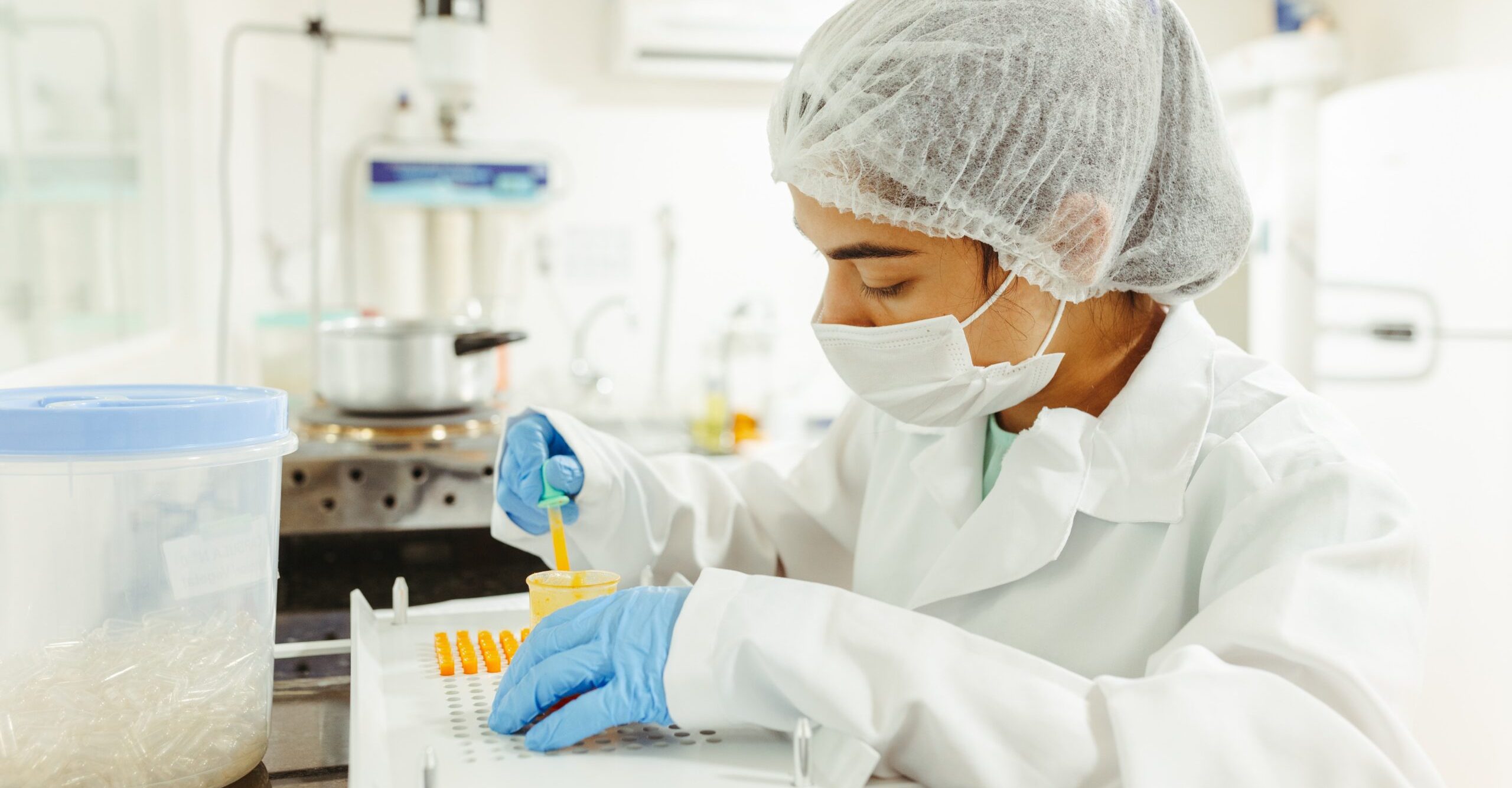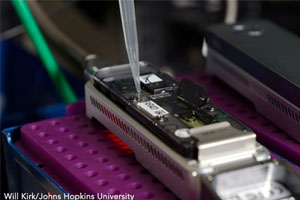The Ontario Hereditary Cancer Research Network will drive research into cancers caused by inherited genetic mutations.
Even as a teenager, long before she knew what a genetic mutation was, Katie Lark was pretty sure she would face cancer someday.
Her grandmother died of ovarian cancer decades earlier, and Katie knew cancer sometimes runs in the family. She also watched her aunt get treatment for ovarian and breast cancer and witnessed the huge challenges that came with it.

“It was always in the back of my mind, even though I never really talked about it,” Katie says.
But that knowledge didn’t make it easier when Katie’s aunt and father both tested positive for an inherited mutation in the BRCA1 gene that increases the risk of certain cancers.
And it didn’t ease the shock when Katie, at 25 years old, also tested positive for the same BRCA1 mutation and was told she had up to an 80 per cent chance of developing breast cancer and a 60 per cent chance of ovarian cancer.
“Imagine being 25 years old and finding that out,” Katie says. “I was pretty freaked out.”
About 10 per cent of all cancers are caused by mutations passed down from parents to children. They are called hereditary cancers.
Advancements in genetic testing have helped many Ontarians find out about their risk of hereditary cancers. But access to the 20 different clinics in Ontario that do genetic testing for hereditary cancer can vary depending on where you live in the province. And what to do once you know you inherited a cancer-causing mutation isn’t always clear.
The data generated from genetic testing also creates a huge opportunity for research into how to prevent, detect and treat hereditary cancers. But in Ontario, that data is stored in several different unconnected databases, so it can be difficult to get a full picture of all hereditary cancers across the province.
To Dr. Raymond Kim, a medical geneticist, Ontario is long overdue to break down these data siloes.
“Ontario needs one place to gather data on all people with hereditary cancer so that we can connect people with the right services and research new ways to manage these cancers,” says Kim, who practices at the University Health Network, Mount Sinai Hospital and SickKids.
Kim shared this vision with different stakeholders over the past few years, including OICR President and Scientific Director Dr. Laszlo Radvanyi. They ultimately decided that OICR, as the province’s cancer research institute, was the ideal ‘honest broker’ to unify the hereditary cancer community in Ontario. Then, in 2021, Kim and OICR announced plans to build the Ontario Hereditary Cancer Research Network (OHCRN), an Ontario-wide registry for all carriers of hereditary cancer.
Two years later, the OHCRN project is off and running. The network is currently working with OICR’s Genome Informatics team to build the registry and ensure it meets the highest standards of data security. The network expects to begin collecting data from Ontarians in 2025.
For Kim, who is one of Ontario’s leading hereditary cancer researchers, OHCRN will be an invaluable resource. Access to province-wide data about all types of hereditary cancers will drive game-changing research into some of the biggest questions in hereditary cancer.
That includes studying why some people with cancer-causing genes end up developing cancer, and why some don’t. The answer could inform new ways to treat hereditary cancers or stop them before they start.
Researchers can also use this data to find the best ways to screen people for the many different types of cancer that are hereditary. While a mammogram can screen for breast cancer and an MRI could look for other types of cancer, there is no unified way to screen people with cancer-causing genes for all cancers they could develop.
“Many scientists, including several at OICR, are exploring whether blood tests for cancer – sometimes referred to as ‘liquid biopsies’ – could be a valuable tool,” Kim says.
What researchers learn from OHCRN data also has implications beyond hereditary cancers, Kim says. That’s because many cancer-causing genes are not inherited at birth. Sometimes genetic mutations happen later in life, for different reasons. But the cancers that develop from these mutations are treated largely in the same way, whether hereditary or not.
“That’s why hereditary cancers have been called the Rosetta Stone of all cancers,” Kim says.
Though he’s excited by the opportunities OHCRN creates for research, Kim says the goal of the OHCRN project is ultimately to connect and support patients as soon as possible.
“It’s all about patients for me, and especially those that are outside of big cities like Toronto,” he says. “It excites me that we can bring them into an Ontario-wide community and improve their standard of clinical care.”
As a genetic counsellor in Orillia, Lauren Hughes witnessed how challenging it can be for people with hereditary cancer in smaller communities. She would often have to direct patients to Toronto to access services.

“I simply didn’t have the same resources available to my patients that my colleagues in bigger cities did,” Hughes said. “They might have to travel for their screening or treatment, or if they wanted to participate in a clinical trial.”
That experience motivated Hughes to join OHCRN as Program Manager in September 2021. She has since helped lay the groundwork for the network and bring different stakeholders on board. One of the most important early steps was building strong relationships with the existing hereditary cancer infrastructure across the province. The project now has collaborators at all of Ontario’s 20 hereditary cancer clinics and all nine of the molecular laboratories that test for hereditary cancer, which is where most OHCRN data will come from initially.
As the project progresses, OHCRN will launch its own online portal where people with hereditary cancers can register and provide consent for OHCRN to access data from their clinical and lab reports. Once they are part of the network, people will have access to information about cancer screening programs and clinical trials that may be appropriate for them.
“We’re trying to give that power back to people with hereditary cancer to be able to self-identify and advocate for themselves,” Hughes says.
The results of Katie Lark’s genetic test, while extremely difficult to hear, gave her the chance to make proactive decisions about her health. Yet she was left with a difficult choice: have surgery to remove her breasts and reproductive organs before they could develop cancer or get regular tests and scans and wait to see if cancer developed.
She ultimately decided to have a double mastectomy at 27 and a full hysterectomy and salpingo-oophorectomy at 30. And while she is proud to have taken preventative action against hereditary cancer, she wishes things could have been easier.
“I want there to be better options for patients like me,” says Katie, who is now working with OHCRN as a patient partner. “Ten years from now, I hope people aren’t faced with the same tough choices.”




